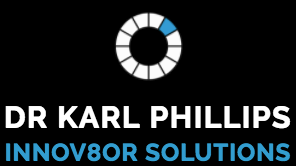Skill
Skill
Creating opportunities for co-operation between people who are working on a task to generate a willingness of that group to put differences aside and to work together using their individual skills and provide constructive feedback to achieve a common aim, that would be unachievable if they tried to act as an individual
Competency
Competency
Innovator
Competency Level
Competency Level
95%
Knowledge (Theories, Ideas & Concepts)
Through Professional/Personal Study Gained Through Experience
Skills & Application of Knowledge
in Real World Situations
Together with Responsibilities/Accountabilities
Selected Challenges & Approaches
Together With lessons Learnt
Selected Achievements & Successes
Together with Any ‘So What’ Statements of Insights
